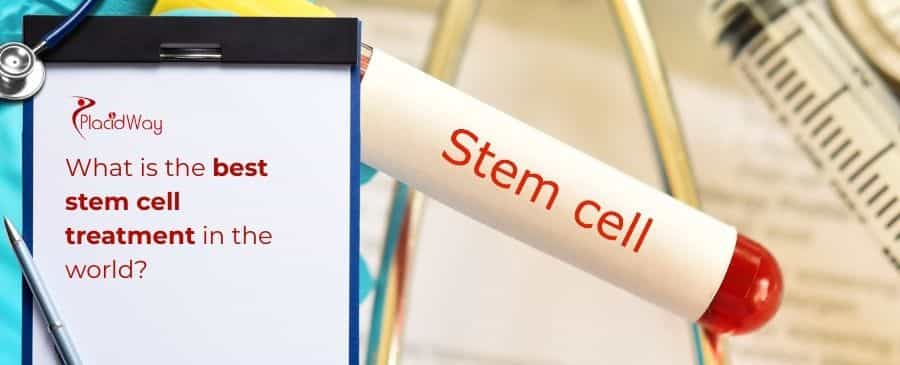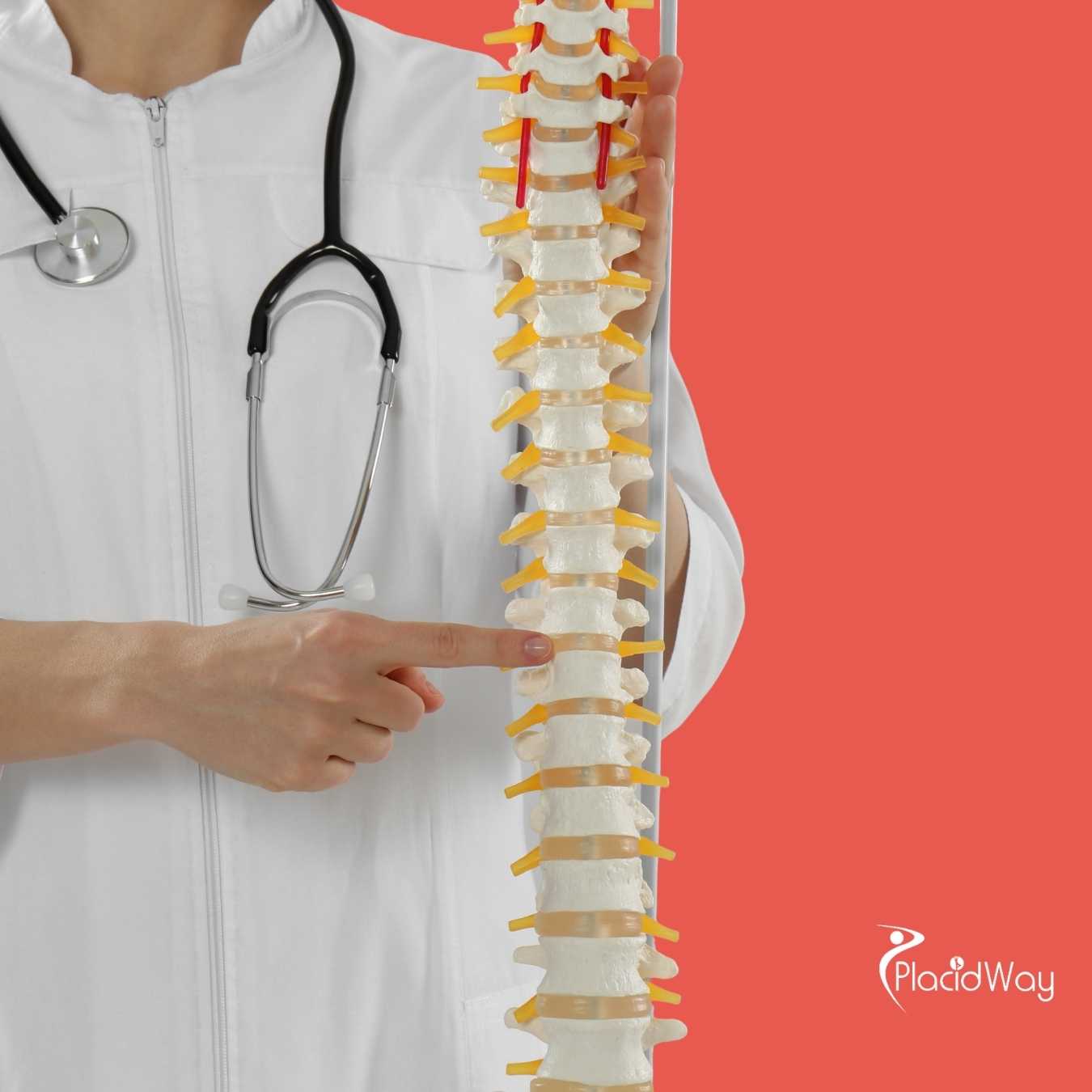Best Stem Cell Treatments Around the World

In the rapidly advancing world of regenerative medicine, the question "What is the best stem cell treatment in the world?" is a natural and hopeful one. Patients and their families, often dealing with chronic and difficult-to-treat conditions, are looking for the most effective and powerful therapies available.
While the question is simple, the answer is complex. The "best" stem cell treatment isn't a specific brand, a famous clinic, or a single location—it's a set of rigorous quality standards that come together to create a safe and potentially effective therapeutic protocol.
The true "best" treatment is the one that is most appropriate for your specific medical needs and is delivered with the highest possible standards of medical and scientific excellence. This guide, current for 2025, is designed to move beyond marketing claims and teach you how to identify these standards.
We will break down the crucial factors that define a world-class stem cell therapy, including the type and quality of the cells, the importance of the laboratory, the role of government regulation, and the qualifications of the medical team. Our goal is to empower you with the knowledge to find the best stem cell treatment for you.
Why is there no single 'best' stem cell treatment?
The human body contains many different types of stem cells, each with unique functions. Furthermore, the goal of therapy changes depending on the illness. A successful treatment is one that is precisely tailored to the patient. Consider these different goals:
- Orthopedic Conditions (e.g., Arthritis): The goal is to reduce inflammation and promote cartilage repair within a joint. This often requires direct injections of Mesenchymal Stem Cells (MSCs).
- Autoimmune Conditions (e.g., MS, Rheumatoid Arthritis): The primary goal is to regulate the entire body's immune system and reduce systemic inflammation. This typically requires a large dose of MSCs administered intravenously (IV).
- Blood Cancers (e.g., Leukemia): The standard of care here is Hematopoietic Stem Cell (HSC) transplantation (bone marrow transplant), which is a completely different procedure used to rebuild the blood and immune system.
Therefore, the "best" treatment must always be discussed in the context of a specific diagnosis. A clinic that offers a one-size-fits-all protocol for every condition is a major red flag.
What defines a high-quality, world-class stem cell treatment?
These four pillars are the non-negotiable markers of a legitimate and world-class provider.
- The Quality of the Cells: This is paramount. It includes using the right cell type, ensuring a high viability (percentage of live cells), and verifying the purity and sterility of the dose.
- The Expertise of the Medical Team: Treatment must be designed and administered by a licensed medical doctor with experience in regenerative medicine.
- Regulatory Compliance: The clinic must be licensed by its country's national health authority (e.g., INVIMA in Colombia, COFEPRIS in Mexico). This is your assurance of safety and legality.
- Personalized Care: The treatment plan should be based on a thorough review of your medical records and diagnostic tests, not a generic protocol.
Any clinic that cannot meet all four of these standards should not be considered, regardless of its marketing claims.
Autologous vs. Allogeneic Cells: Which is better?
This is a key scientific distinction that impacts the quality and potential efficacy of a treatment.
| Cell Type | Source | Pros & Cons |
|---|---|---|
| Autologous | The patient's own body (fat tissue or bone marrow). | Pro: No risk of rejection. Con: Cell quantity and quality decline with age; not ideal for treating systemic autoimmune disease. |
| Allogeneic | A healthy, screened donor (most commonly umbilical cord tissue). | Pro: Uses young, highly potent and numerous cells. Can be expanded to high doses in a lab. Con: Requires a highly reputable lab to ensure safety and screening. |
For most regenerative applications outside of simple orthopedic injections, the "best" treatments increasingly use high-dose, lab-expanded allogeneic Mesenchymal Stem Cells (MSCs) from umbilical cords.
Why is the quality of the laboratory so important?
A stem cell treatment is only as good as the lab that produces the cells. A world-class treatment requires a world-class lab. These are sophisticated, multi-million dollar facilities, not small rooms with basic equipment. Key functions of a high-quality lab include:
- Sterility: Operating in a "clean room" environment to prevent any bacterial or fungal contamination.
- Cell Expansion: Using precise techniques to culture and grow cells over weeks to achieve doses of hundreds of millions of cells.
- Quality Control: Continuously testing the cells to ensure they are the right type, are behaving as expected, and are free of genetic abnormalities.
- Validation: Providing a Certificate of Analysis (COA) for every batch, which details the cell count, viability, and sterility test results.
Which countries are known for high-quality, regulated stem cell therapy?
While the U.S. has the most advanced research, its regulations are highly restrictive for clinical applications outside of FDA trials. This has led to the rise of international centers of excellence. The "best" clinics are typically found in countries that have embraced regenerative medicine with a clear legal and scientific framework.
Countries like Colombia and Mexico have become leading destinations because their health authorities (INVIMA and COFEPRIS) have created a pathway for clinics to become licensed and regulated. This provides a crucial layer of safety and assurance for patients that is absent in unregulated markets.
What are the biggest red flags of a low-quality or fraudulent clinic?
Protect yourself by being a vigilant researcher. Walk away from any clinic that:
- Cannot provide you with their official government license number.
- Is vague about the source, type, or dose of the cells.
- Cannot provide a COA from a third-party lab for your specific dose.
- Uses high-pressure sales tactics or makes unrealistic promises.
- Does not have a licensed medical doctor in charge of your treatment plan.
Finding the best stem cell treatment clinic in the world for your needs requires a trusted partner. Placidway is a global leader in medical tourism, dedicated to connecting patients with a network of accredited, pre-vetted hospitals and clinics. Explore safe, high-quality options for regenerative medicine and plan your journey with confidence.


.png)









Share this listing